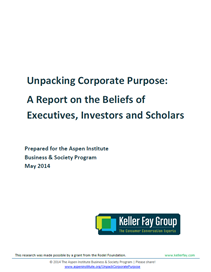autres publications normes de droit
USA : le secrétaire du travail encourage l’ISR
Ivan Tchotourian 27 février 2016
Aux Etats-Unis, US SIF a commenté il y a quelques mois (« US SIF Commends Department of Labor Repeal of 2008 Bulletin Discouraging Fiduciaries from Incorporating Social and Environmental Investment Factors », 22 octobre 2015) l’annonce faite par le secrétaire du travail (Tom Perez) que l’administration comptait revenir sur un Bulletin de 2008 dans lequel les investisseurs étaient découragés de prendre en considération les facteurs sociaux et environnementaux dans les sociétés et les fonds où ils plaçaient leur argent.
Pour en savoir plus : Department of Labor, Employee Benefits Security Administration, « Interpretive Bulletin Relating to the Fiduciary Standard under ERISA in Considering Economically Targeted Investments », 29 CFR Part 2509, RIN 1210-AB73.
This document sets forth supplemental views of the Department of Labor (Department) concerning the legal standard imposed by sections 403 and 404 of Part 4 of Title I of the Employee Retirement Income Security Act of 1974 (ERISA) with respect to a plan fiduciary’s decision to invest plan assets in “economically targeted investments” (ETIs). ETIs are generally defined as investments that are selected for the economic benefits they create in addition to the investment return to the employee benefit plan investor. In this document, the Department withdraws Interpretive Bulletin 08-01 and replaces it with Interpretive Bulletin 2015-01 that reinstates the language of Interpretive Bulletin 94-01.
À la prochaine…
Ivan Tchotourian
autres publications objectifs de l'entreprise
Proposition de The Aspen Institute contre le court-terme
Ivan Tchotourian 3 septembre 2015
The Aspen Institute a publié en mai 2014 un document intitulé « Unpacking Corporate Purpose: A Report on the Beliefs of Executives, Investors and Scholars » qui recense des entrevues et dans lequel il fait des propositions percutantes pour contrer le court-termisme. Quelles sont ces propositions ?
- Alter incentive arrangements,particularly compensation packages, and gear them for the longer term
- Fully investigate a way to monetize the matters that are currently regarded as “abstract” in order to compete for attention or complement concrete metrics like the stock price
- Alter or simplify the tax code
- Promote the partnership between a clear and formal declaration of mission and a thorough alignment with that mission
- Foster%ransparency – by demanding better communication skills among corporate managers to counter the pernicious effects of short-term thinkers
- Create better balance in the corporation’s decision making structure, particularly by expanding the influence of employees, whose well-being tends to be linked to long-term planning and success.
- Demonstrate a greater commitment to attracting and training strong leaders
- Increase the visibility and exploit the power of research that measures and évaluates corporate reputation.
- Explore the possibilities in new ways of forming corporations
- Offer different classifications of stock that reflect the extent to which they represent long- or short-term orientations by the shareholders
Most commentary on corporate purpose and corporate governance is couched in narrow assumptions about what corporate exécutives and investors believe. Rather than assume, we have commissioned independent research to ask executives, investors and scholars to unpack what they really believe about the purpose of the corporation. Twenty-eight one-hour interviews were conducted in late 2013 and early 2014 and the results may surprise you.
À la prochaine…
Ivan Tchotourian
